By Holland Cooke
Consultant
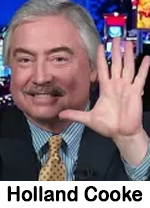 By 2009, I had been making my living consulting and coaching talk hosts for 14 years, but I myself had not yet hosted a talk show. Like Rush Limbaugh before he went-talk, I had lots of on-air time under my belt as a music DJ. And that same skill set contributes to talk radio success: “Play the hits” (topics) and convert Cume to AQH (technique).
By 2009, I had been making my living consulting and coaching talk hosts for 14 years, but I myself had not yet hosted a talk show. Like Rush Limbaugh before he went-talk, I had lots of on-air time under my belt as a music DJ. And that same skill set contributes to talk radio success: “Play the hits” (topics) and convert Cume to AQH (technique).
This month and next, when so many take vacation time, guest-hosts are often local somebodies who are not career broadcasters and don’t share our second-nature performance routines. For their benefit, these tips, based on my experience on both sides of the mic:
My hosting debut was “The Jim Bohannon Show.” And Jimbo told me I was only the third person to ever guest-host, after Joan Rivers and Chris Matthews jump-started their broadcast careers there. But, to these listeners, who-the-heck was I? Lacking the back-story of an A-list comedian or former presidential speechwriter, I simply told the truth, saying, “I’m Jim’s pal, Holland Cooke” as I quickly invited callers into the hour’s topic or teed up the guest. I had promised myself I would avoid “The Sitting-In For Rush Syndrome:” unscripted monologue about myself and blah-blah-blah until the first break. TALKERS publisher Michael Harrison – himself a well-traveled guest host – recommends nonchalance and warns against, “It’s such an honor to be here!”
So, if you’re filling-in, that’s Tip #1: Cut to the chase. Don’t devalue the show by committing lots of time explaining that the familiar host is away and who you are. Tee-up what the show is about this hour… why it matters to those listening… how they will benefit from not wandering-off when they hear a stranger… and how to join-in.
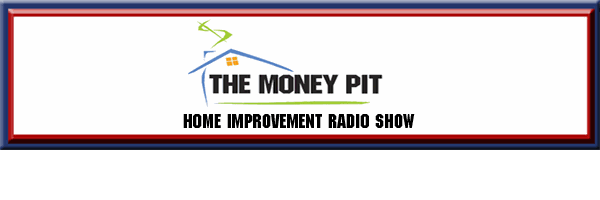
Demonstrating this technique when “FOX Across America” host Jimmy Failla is off: my long-suffering client Paul Gleiser. His day job is owning KTBB, Tyler-Longview, Texas; and his side hustle is guest-hosting Jimmy’s show, which he’s done a half-dozen times this month. Understanding Tip #2: You’re a guest in someone’s home, Paul asked Jimmy for advice. Always in-character, Failla quipped “Drive it like you stole it!” So Gleiser is all about call count, teeing-up TWO tempting propositions, one topical, the other a softer “Bonus Question.” As I write this, he’s asking, “Which Democrat do we [Republicans] want to run-against in 2024?” and – as new employment numbers are announced – “The WORST job you ever had?” Callers are telling stories.
That’s Tip #3: Invite callers. Admittedly, my debut was a snap, with Jimbo’s show on 500-plus stations. But later, when then-PD Bill White had me do three nights on WBT, Charlotte, he texted me after my first hour to say that I had taken more calls that hour than other hosts get-around-to in a week. In a recession, I asked if callers were “Seeing ‘green shoots’ of recovery?” and “The best car you ever owned?” They all told stories about both. “DON’T beg for callers,” Harrison says. And bring more than just your voice, i.e., guests and sound bites from news feeds. Gleiser: “Prep like the phone is broken.”
Tip #4: Invite participation multiple ways. Many listeners would rather text than call. Do so and you’ll sound accessible and at-the-speed-of-life. And follow @smerconish to see how (effectively) he polls listeners via social media.
Tip #5: “Know what the show was about yesterday,” Gleiser urges, because political topics tend to change little day-to-day. Avoid this trap: The guest host’s outspoken narrative is a point that’s already been talked-to-death BUT this is HIS shot on a big show, so this is HIS turn to me-too the unison. Better approach: Come up with a new wrinkle; like Paul’s aforementioned “Who [Democrat] do we [Republicans] have the best chance of beating in 2024?”
Tip #6: Empower callers, by asking their FEELINGS, rather than asking for facts or their expertise. They’re not experts. Instead, use The Magic Words (“you” and “your”): “Should you be fined for installing or replacing your gas stove?” Or empower them with access to a guest they can Q+A about matters that matter to their lives. When the fill-in host is “a somebody” – the mayor or an athlete or an expert – the host him/herself is an opportune topic. As we say when inviting calls to hosts who broker weekend airtime: “The lawyer is in, the meter is off.”
Tip #7: Establish a relationship with the producer “BEFORE the show” Gleiser advises: “Don’t just show up.” Ascertain who-does-what. In some cases, the producer will have booked guests and may suggest or assign call-in topics. Or – in Jimmy Failla speak – you’re driving, if the producer is simply call-screening and running-the-board (which you should NOT attempt if you’re not an experienced broadcaster or if you are unfamiliar with this particular station’s set-up).
Tip #8: Keep re-setting – succinctly, “matter-of-factly” as Michael Harrison puts it — introducing yourself and your guest-or-topic — when you’re going-into and coming-out-of breaks, and at the beginning of each hour. Why: Listeners are constantly tuning-in.
Tip #9: Always and only announce the call-in number immediately after you tell them WHY to call. Most common mistake I hear, even from experienced hosts: They give-out the phone number at the very beginning of the show or hour or segment, then (eventually) they tell you why to call, possibly minutes later (an eternity in live radio). So, they’re haunted by those dreaded “regulars” who already have the number memorized. Make announcing the number the punch line, whether you’re asking opinions on topic du jour or offering access to a guest they’ll want to interact with. ‘Seems like a little thing, but this can make a big difference in how popular you make the station sound.
Tip #10: “Be a convenience to the station,” not high maintenance. Harrison: “If you’re a diva they won’t ask you back.”
Tip #11: Afterward, give it a listen. If you do this for a living, wait a week, so you hear your work with fresh ears. Not a broadcaster? Was there a segment worth sharing on your blog or via social media? Did you or a guest explain something real useful? On Twitter, link to an audio clip of “Pet Pro Dr. Donna Johnson’s tips for helping your critters keep their cool during a long, hot summer,” so you’re useful to those who weren’t listening live. For LOTS of clicks and shares, include pictures of cuddly kittens and puppies.
Tip #12: If you are a career broadcaster, “always be available (and prepared) on short notice,” Michael Harrison recommends. 😉
Holland Cooke (HollandCooke.com) is a consultant working at the intersection of broadcasting and the Internet. He is the author of “Spot-On: Commercial Copy Points That Earned The Benjamins,” a FREE download; and the E-book and FREE on-air radio features “Inflation Hacks: Save Those Benjamins;“and Multiply Your Podcast Subscribers, Without Buying Clicks,” available from Talkers books. Follow HC on Twitter @HollandCooke
Share this with your network
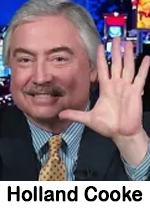 I’m occasionally asked this by attorneys, real estate agents, personal finance advisors, and other local retail service professionals who are disappointed with results they’re getting from hosting weekend ask-the-expert call-in shows.
I’m occasionally asked this by attorneys, real estate agents, personal finance advisors, and other local retail service professionals who are disappointed with results they’re getting from hosting weekend ask-the-expert call-in shows.


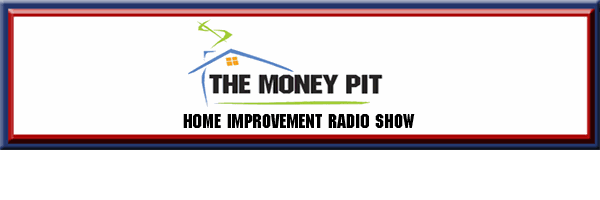
 Many news/talk stations broker weekend hours to professionals who host ask-the-expert shows to attract new clients.
Many news/talk stations broker weekend hours to professionals who host ask-the-expert shows to attract new clients.
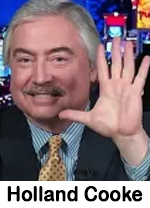 The stations I work with make big money with live endorsement spots delivered by familiar local on-air personalities. Remember them? With most AM/FM broadcast hours now robotic or non-local, your relationship with the listener is precious and can be leveraged… carefully.
The stations I work with make big money with live endorsement spots delivered by familiar local on-air personalities. Remember them? With most AM/FM broadcast hours now robotic or non-local, your relationship with the listener is precious and can be leveraged… carefully.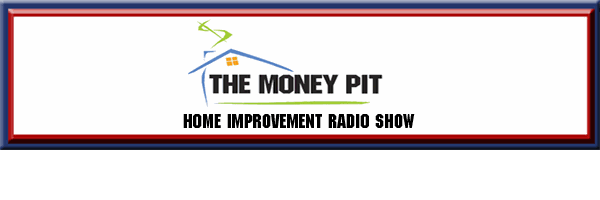
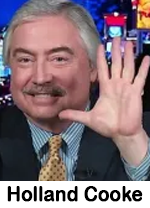 As this week’s first Republican presidential debate looms, my FOX News Radio-affiliated client stations are irked. Thanks to their network, they’re carrying it live, and locally sponsored, and promo-ing it aplenty. A couple of my clients will travel to Milwaukee to wrap pre- and post-game color around the play-by-play. So, yuh, they’re irked.
As this week’s first Republican presidential debate looms, my FOX News Radio-affiliated client stations are irked. Thanks to their network, they’re carrying it live, and locally sponsored, and promo-ing it aplenty. A couple of my clients will travel to Milwaukee to wrap pre- and post-game color around the play-by-play. So, yuh, they’re irked.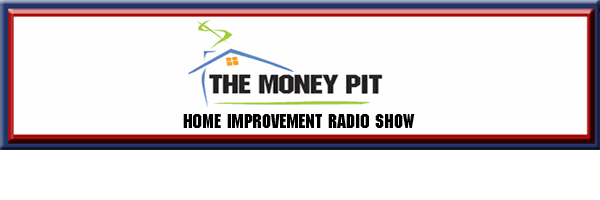
 Those are the two consultant buzzwords that hosts I coach are hearing in their sleep. And a couple more “E” words: Empathy and Empower.
Those are the two consultant buzzwords that hosts I coach are hearing in their sleep. And a couple more “E” words: Empathy and Empower.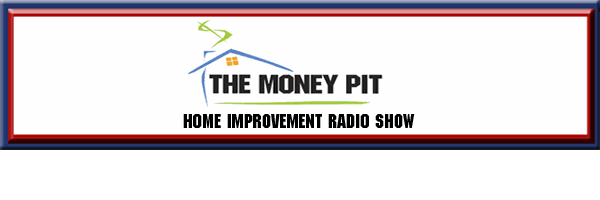
 She was the agent I enjoyed working with most over three decades I was an active real estate investor. We remain good friends, and her technique informs the work I do coaching agents – and attorneys and financial advisors and other professionals – who host ask-the-expert radio shows.
She was the agent I enjoyed working with most over three decades I was an active real estate investor. We remain good friends, and her technique informs the work I do coaching agents – and attorneys and financial advisors and other professionals – who host ask-the-expert radio shows.
 Fellow longtime, long-ago DJs: You know what I’m talking about. And it’s a life sentence, eh?
Fellow longtime, long-ago DJs: You know what I’m talking about. And it’s a life sentence, eh?
 THE Best Bit I’ve Heard This Month was by Gene Valicenti, morning host, WPRO-AM/WEAN-FM, Providence.
THE Best Bit I’ve Heard This Month was by Gene Valicenti, morning host, WPRO-AM/WEAN-FM, Providence.
 By 2009, I had been making my living consulting and coaching talk hosts for 14 years, but I myself had not yet hosted a talk show. Like Rush Limbaugh before he went-talk, I had lots of on-air time under my belt as a music DJ. And that same skill set contributes to talk radio success: “Play the hits” (topics) and convert Cume to AQH (technique).
By 2009, I had been making my living consulting and coaching talk hosts for 14 years, but I myself had not yet hosted a talk show. Like Rush Limbaugh before he went-talk, I had lots of on-air time under my belt as a music DJ. And that same skill set contributes to talk radio success: “Play the hits” (topics) and convert Cume to AQH (technique).
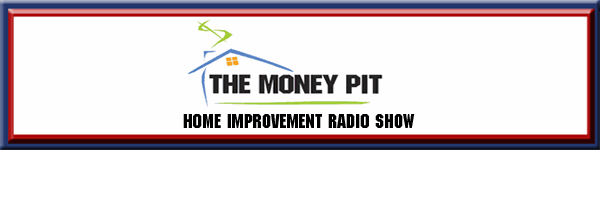
 Has this happened to you? Moments after you have met someone, you forget his or her name? OOPS.
Has this happened to you? Moments after you have met someone, you forget his or her name? OOPS.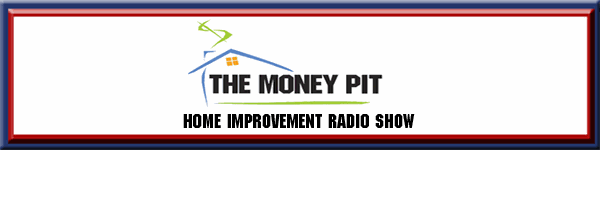
 Mark Twain reckoned that “the difference between the almost right word and the right word is the difference between the lightning bug and the lightning.”
Mark Twain reckoned that “the difference between the almost right word and the right word is the difference between the lightning bug and the lightning.”
 How will AI tools like ChatGPT impact the way we work? The clues are everywhere. Several client stations have automated weather, and even with your consultant’s trained ear, I had to ask. And yes, she’s a robot.
How will AI tools like ChatGPT impact the way we work? The clues are everywhere. Several client stations have automated weather, and even with your consultant’s trained ear, I had to ask. And yes, she’s a robot.
 Warning: The Commonwealth of Massachusetts certified me to teach high school English, in the early 1970s, the last year certifications were for life. Though I was lured-away by VU-meter hypnosis, I still carry a red pen. And radio news has it running-dry.
Warning: The Commonwealth of Massachusetts certified me to teach high school English, in the early 1970s, the last year certifications were for life. Though I was lured-away by VU-meter hypnosis, I still carry a red pen. And radio news has it running-dry.
 Ever lost your phone? It’s an instant sick, sinking feeling. It’s quaint to even call it a “phone,” because it’s…everything. Including us. Like the transistor radio Boomers toted in our youth, it’s audio in your pocket.
Ever lost your phone? It’s an instant sick, sinking feeling. It’s quaint to even call it a “phone,” because it’s…everything. Including us. Like the transistor radio Boomers toted in our youth, it’s audio in your pocket.
 Tik-Tok is hot (largely among users too young to be heavy AM/FM listeners) and it’s in-the-news (about its possible ban). And, yes, Facebook remains T-Rex in the social media jungle. But people on Twitter seem to live there.
Tik-Tok is hot (largely among users too young to be heavy AM/FM listeners) and it’s in-the-news (about its possible ban). And, yes, Facebook remains T-Rex in the social media jungle. But people on Twitter seem to live there.
 It’s the most effective tactic in marketing: Free samples. And the attorneys, financial advisors, real estate agents, veterinarians, and other ask-the-expert hosts who broker time for weekend call-in shows can drum up lots of new business…IF they execute well.
It’s the most effective tactic in marketing: Free samples. And the attorneys, financial advisors, real estate agents, veterinarians, and other ask-the-expert hosts who broker time for weekend call-in shows can drum up lots of new business…IF they execute well.